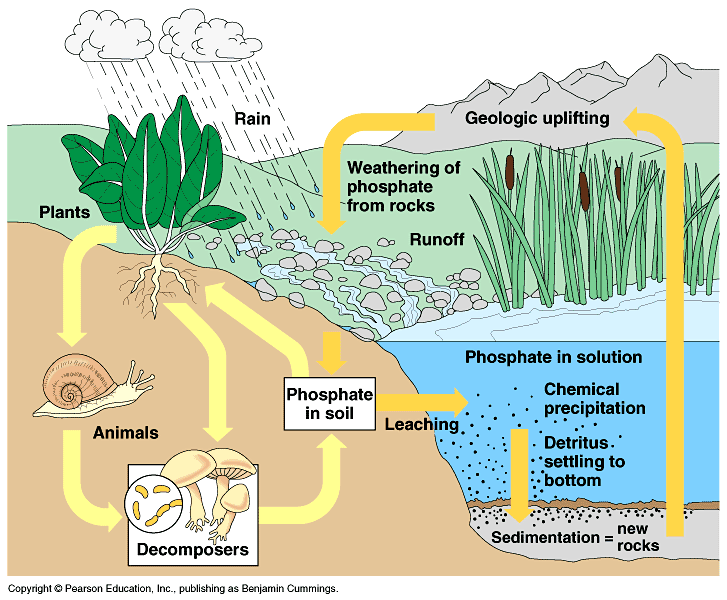Ecosystems are the New Oil
Out with extraction, in with investing. Let’s make the tent bigger.

When the phrase “data is the new oil” began making a comeback a few years ago, it immediately resonated with me. Here — finally! — was a concept that packaged up the rough-and-tumble internet economy experiment we’re all living through into a pretty little box. Data in, money out.
In addition to capturing my imagination, it also disturbed me. Haven't we learned anything from a century of fossil fuel extraction and exploitation? As a world-view, it didn’t sit well.
Lucrative, But Dangerous
In a recent Ted-talk piece, artist and technologist James Bridle argued that data was more like nuclear power than oil. He argued that “data is a valuable, powerful commodity — but unlike oil, it is unlimited in quantity and in its capacity for harm.”
I think he’s right — data, like oil, is indeed a mercurial commodity. While valuable, the means of extracting it and (especially) monetizing it, can be short-sighted, risky, and even predatory. Rarely is the full cost understood during the upfront transaction.
We can see it already: Data frackers are getting extremely good at finding (or creating) fissures to exploit … weak points and honeypots that promise super-cheap prices or free services. And once they’re in, they have access to what they really wanted in the first place: Your data.
In my opinion, that approach is not one to stake our future on. It’s a wrong approach to go drilling where you shouldn’t, or without thought to the long-term costs and consequences. While the investment may yield short-term profits, assets that you grab with no purpose other than to monetize them tend to lose their value quickly. The well, at some point, will almost certainly run dry, or you’ll leave a SuperFund site to your grandkids.
Investing Versus Extracting
Commoditization, chipping away at something just to get more of it … where is the craft in that? How can that way of living and doing business solve the knotty problems facing all of us? In this day and age, it’s not enough to be the biggest one on the block — or to have the most oil reserves. You also have to show up, play ball, and create value.
I have nothing against data, or even monetizing it. But as fuel for our next wave, we need something more holistic — and it seems to me that data alone isn’t the driver. We need a construct that is regenerative.
I would say solar is the new oil, but it feels limiting and doesn’t have a good ring to it. Instead I’ll offer this: data isn’t the new oil — ecosystems are.
Healthy examples of this already exist: Take a look at the “network effect” that underpins the strategy of datacenter provider Equinix, the entrepreneurial petri dish that is Silicon Valley, or the expanding world of open source software.
Non-linear Horizons
Step outside the tech world (where we are comfortable using the word in a very narrow sense) and you’ll recall from primary school science that ecosystems are much bigger concepts. A series of highly interdependent elements, functioning together symbiotically to enable the lifecycle.

Much like the magnificently complex geological ecosystem that provides for life on our planet, end-to-end technology ecosystems are nuanced, crazy hard to create, and fragile. They require time, meticulous effort, and patience to create. When you’re collecting GitHub stars instead of mineral rights, you have to consistently add value, show accountability, and demonstrate stewardship. Otherwise those stars quickly lose their brightness.
This approach breeds scalability. Take the digital payments provider Square, which has successfully nurtured its peer-to-peer cash app ecosystem, and which has now expanded to include a second ecosystem for the “underbanked.” According to Square CFO Amrita Ahuja, the company is committed to growing its “non-linear horizons,” and far from capping out on scale, Square maintains they’re just getting started.
It’s Not the Cloud: It’s a Technology Ecosystem
Ironically, for those who are used to thinking about “cloud” as a nicely packaged and self-sustaining entity, it’s clearly made up of a number of distinct elements.
- Capital
- Real Estate
- Connectivity
- Silicon / Intellectual Property
- Hardware
- Power
- Distribution & Logistics
- Software
Scratch under the surface of any one of these distinct components, and you’ll find an incredible amount of innovation and diversity. Instead of thinking of this as a technology stack—in which the value sits mainly at the top—I think we have to see each as equal parts of a technology ecosystem.
Time to Embrace an Ecosystem Mindset
There is no get-rich-quick approach to building ecosystems. Certainly, you can get your foot in the door — check out Microsoft’s string of ecosystem-related acquisitions like GitHub. But because ecosystems are circular, you have to put your heart into it. Otherwise, they dissipate.
To succeed long-term, you have to continuously add value and support. Like any skill or muscle, that takes exercise and practice.
That’s what excites me, and everyone I work with: It’s a central focus of our mission at Packet. A major way successful ecosystems grow is by supporting others in their spheres; by enabling smaller companies to get to the next level, while benefiting from what those companies have to offer. Or, as James H. Moore wrote in the Harvard Business Review, “co-evolving cooperatively instead of inside a vacuum.”
- Old Way: Sell More Shit. → New Way? Deliver More Value.
- Old Way: Corner the Market. → New Way? Make the Tent Bigger.
- Old Way: Commoditized. → New Way: Crafted.
That’s the kind of win-win we should all aspire to, and an approach that’s inspiring to me. The ecosystems that I’ve been lucky enough to be apart of resonate with those virtues—and experience similar challenges.

Ready to kick the tires?
Use code DEPLOYNOW for $300 credit